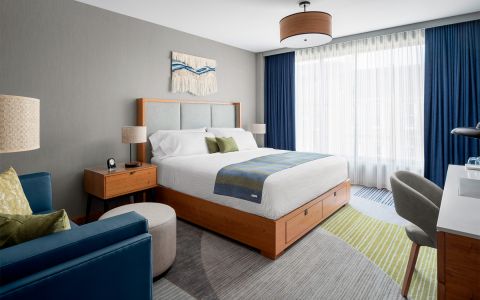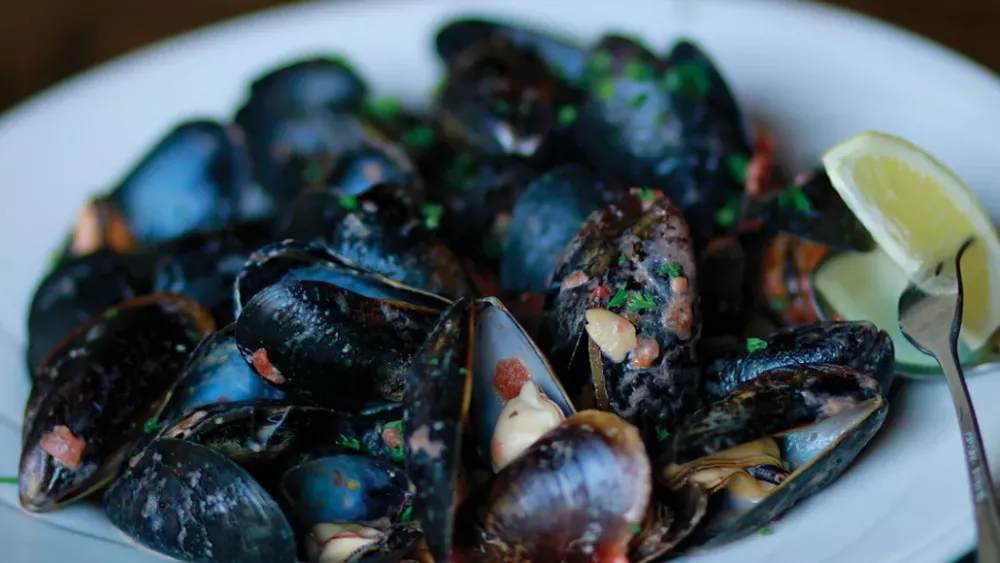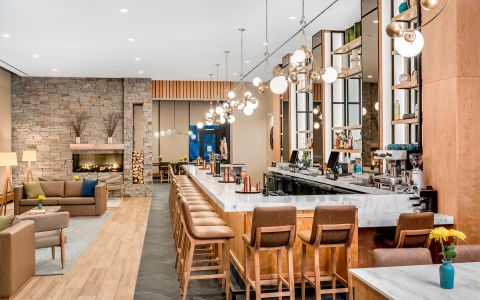About
Waterville, Maine: A Charming City of Opportunity and Heritage
Located along the banks of Kennebec River, the city of Waterville is central Maine's destination for dining, lodging, recreation and the arts. A vibrant city with a small town feeling, Waterville’s population hovers around 16,000 people and was built around once-flourishing textile mills and factories.
Waterville, Maine is a true college town and home to both Colby College and Thomas College and has close partnerships with both institutions. The city has recently undergone major revitalization efforts in partnership with Colby College. The college has invested some $82 million into giving this once struggling former mill town a new chance.
Waterville, Maine’s hotels and motels accommodate a wide range of visitors’ needs. Waterville’s newest hotel, The Lockwood, was built as part of Colby College’s downtown revitalization and features elegant and modern amenities. For more intimate accommodations, there is no shortage of B&Bs and local rentals in the city of Waterville and surrounding areas.
As for dining, Waterville’s restaurants feature cuisines for all tastes, including pub fare, farm to table, Greek, Thai, Lebanese, Indian, Mexican and American foods. Stop by the Downtown Waterville Farmers’ Market on the riverfront for fresh produce, baked goods, dairy and local meats every Thursday afternoon.
Waterville is Central Maine’s hub for the arts with something for everyone to enjoy. Railroad Square Cinema is Maine’s only Sundance Art House Project cinema and home of the Maine International Film Festival, attracting lovers of film from all over the world. The Colby College Museum of Art is open to the public and features American and contemporary art collections. If music is your thing, enjoy the Waterville Rocks summer concert series on the lawn of the Waterville Opera House or if you are into theater, see one of the various shows put on at the historic theater throughout the year.
No matter the weather in Waterville, Maine, there is a recreational activity for the whole family. In the winter, enjoy the extensive Quarry Road Trails for cross country skiing, downhill skiing, fat biking or snowshoeing. In the summer, the trails are open for walking, biking, paddling the Messalonskee Stream or playing disc golf on the 18 hole course. For a leisurely walk, head to the Riverwalk at Head of Falls and stroll the new walkway, which was recently built as part of Waterville’s downtown revitalization efforts.
Waterville FAQs
Why is Waterville called Elm City?
Hundreds of elm trees once lined the streets of Waterville until they fell victim to Dutch Elm Disease in the 1960s and 70s. The numbers quickly dwindled and today there are only a handful of elms left in the city, including a 150 year old tree named "Ellie" in Waterville's Castonguay Square, just outside city hall.
Is Waterville rural?
Waterville is the 11th largest city in Maine with a population hovering around 16,000. Once a bustling center for industry, Waterville remains a destination for shopping, dining, and the arts for surrounding towns. Waterville is bordered by the towns of Fairfield, Oakland, Sidney, and Winslow, all more rural areas then the city of Waterville. Surrounding towns include Albion, Belgrade, China, Clinton, and Vassalboro. The capitol city of Augusta is just a 20 minute drive from Waterville.
How large is Waterville, Maine?
Waterville is 14.01 aquare miles with a population density of 1,219 people per square mile. Waterville is the 2,255th largest city in the United States.
What is Waterville known for?
Waterville is known for its manufacturing roots, once home to textile and pulp industries in the 19th and 20th centuries. These mills provided local employment opportunities and attracted French-Canadians to immigrate to the city. There is also a strong presence of Lebanese families in Waterville who immigrated in the 1860s during a Christian and Muslim revolution in Syria. Waterville is known for its two colleges, Colby and Thomas Colleges. Notable residents of Waterville include Edmund S. Muskie, George J. Mitchell, and Harold Alfond.
What is it like to live in Waterville, Maine?
Waterville is a dense suburban area with neighborhoods and a central downtown area. Major revitalization efforts and infrastructure repairs are underway in Waterville's downtown, with new businesses and restuarants emerging. Waterville is a city with a small town feeling, with opportunities to enjoy recreation and the arts. The people of Waterville are friendly and residents feel a strong sense of community. The median household income is $39,722 and the cost of living is relatively low in Waterville. Waterville is just a short drive away from the cities of Portland and Bangor, the coast, many lakes, and mountains for skiing and hiking.

 Hotels:
Hotels:
 Restaurants:
Restaurants:



